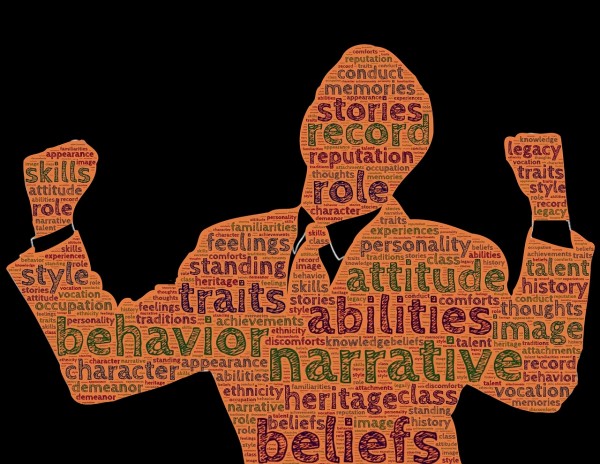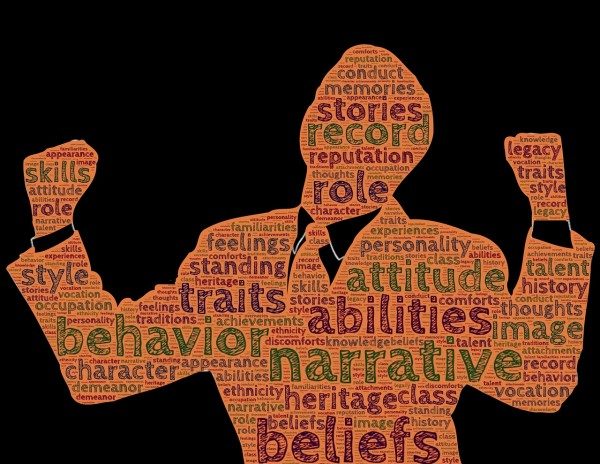I was at a job interview. On the outside, I worked to project the confident, cool and collected interviewee. On the inside, I was on my knees begging ‘Please have mercy on this graduate in the wilderness of graduate employment for those of us without experience!’ I had answered the technical questions with flair (at least, I thought so). I talked about my dissertation, the most recent happenings in the sector…I could already see my staff ID card on the horizon. Then the interviewer looked at me and asked:
What are your two greatest strengths? How do you think your greatest weakness will impact on your performance in this role?
The thing is, up to that point, I had thought that interviews were only to test if an individual had the subject knowledge to do the job. ‘We are looking for an accountant, you are an accountant, you’re hired!’ However, prospective employers are also searching for an individual who is a good fit for their organisation. S/he has the knowledge and experience but…Is s/he a team player? Can s/he persevere through rejection? Is s/he inspirational? How does s/he manage conflict? Is s/he empathetic?
In many sectors, it is not uncommon for personality test results to form an important part of a hiring decision. While I was taught Biotechnology and Statistics at University, I must have missed the day we discussed ‘Developing Self Awareness.’ Emotional intelligence is not a particular focus of the curriculum but maybe it should be. It is vital as one aspires to professional success – be it career or academic – to develop a sense of self-awareness. Self-awareness can be defined as a conscious knowledge of your own character, abilities, motives and desires. What are your innate strengths? What are your innate weaknesses? How do you manage both? How do they influence your academic and career decisions?
I have seen people spend a lot of resources – time, money, energy – pursuing goals, careers, degrees they do not even like. This leads to a lot of frustration, and being true to ourselves, especially about our abilities and preferences, can go a long way in alleviating stress and prevent us from making costly mistakes.
To thyself be true – Know your strengths
Yes, I know you have scored an A in every subject you have ever studied but how would you answer the question, what are your three greatest strengths? A clue – they come to us naturally. So naturally, we often forget that our combination of strengths are personal and do not come naturally to everyone else. Focus on using and developing your strengths because therein lies your competitive edge.
Take some time to reflect and create a list of your personal strengths. Below are a few typical examples. Be careful when preparing your list, that you do not write a list of the strengths you aspire to but those that you truly have. How do you know you have them? People are always complimenting you about them! The best feedback I received from a student was that I had the patience of a saint! Can you choose two personal strengths on your list that you think are your greatest strengths? How do you use them in your current job role? If you are still studying, how are you utilising your strengths to achieve academic success? If you are not using them, why not?
- Team Oriented
- People skills
- Presentation/Speaking
- Organised/Planning
- Educated
- Athletic
- Confident
- Intelligent
- Good-looking ( yes it a personal strength)
- Compassionate/Patient
- Creative
- Leadership
- Flexible and adaptable
- Persuasive/resilient
- Subject knowledge
To thyself be true – Know your weaknesses
In my opinion, an honest evaluation of our weaknesses is just as important as knowing where our strengths lie. Weaknesses, like strengths, are also second nature and pose dangerous blind spots. Having weaknesses is nothing to be ashamed of, welcome to being human.
An appraisal of our weaknesses must answer the question – ‘Is this weakness holding me back from personal/professional success?’ Don’t be like the lad being interviewed for pilot training who when asked about his weakness replied ‘I’m scared of flying!’ All weaknesses are not created equal so focus your resources on managing your most important weakness.
Some typical weaknesses are:
- Obstructive
- Procrastination
- Unassertive
- Impatient
- Talkative/Indiscreet
- Uncompromising/stubborn
- Rude
- Irresponsible
- Undisciplined
- Negative
The key is to focus on your main weakness. Personally, I am working on being more assertive as well as improving my discipline with respect to deadlines.
To thyself be true – Seek feedback
Good managers know which member of their team they can assign a specific task. They know who will be willing to stay behind to achieve a tight deadline and who the best person is to pitch to a potential client. Feedback from your bosses, subordinates, friends and family are crucial in the self-awareness journey. Every encounter leaves an impression with all parties concerned. Do you know what your employer’s honest opinion of you is? Show your list of strengths and weaknesses to your network and ask for their honest opinion. Ask your mentors how they overcame their weaknesses and use their feedback as a tool for growth.
To thyself be true – Develop your personal development plan
Develop a personal development plan. Some say working with your strengths mitigates any weaknesses one may have. I say…it depends. Maybe you are not making the most of the strengths you possess, maybe one particular area of your professional life needs intense work. Your personal development plan may simply be a note in your journal to attend a training session to enable you develop confidence and be more assertive. It could be utilising a new organisational tool to ensure you never hand in a report late again. The idea here is that you’re not just self-aware, you are doing something with the information you get.
Self-awareness is an ongoing process of gathering information, reflecting and applying any new insights you gain. This can lead to a more satisfying performance in your profession or at the very least you will be better prepared to answer the question posed at the beginning of this article.


